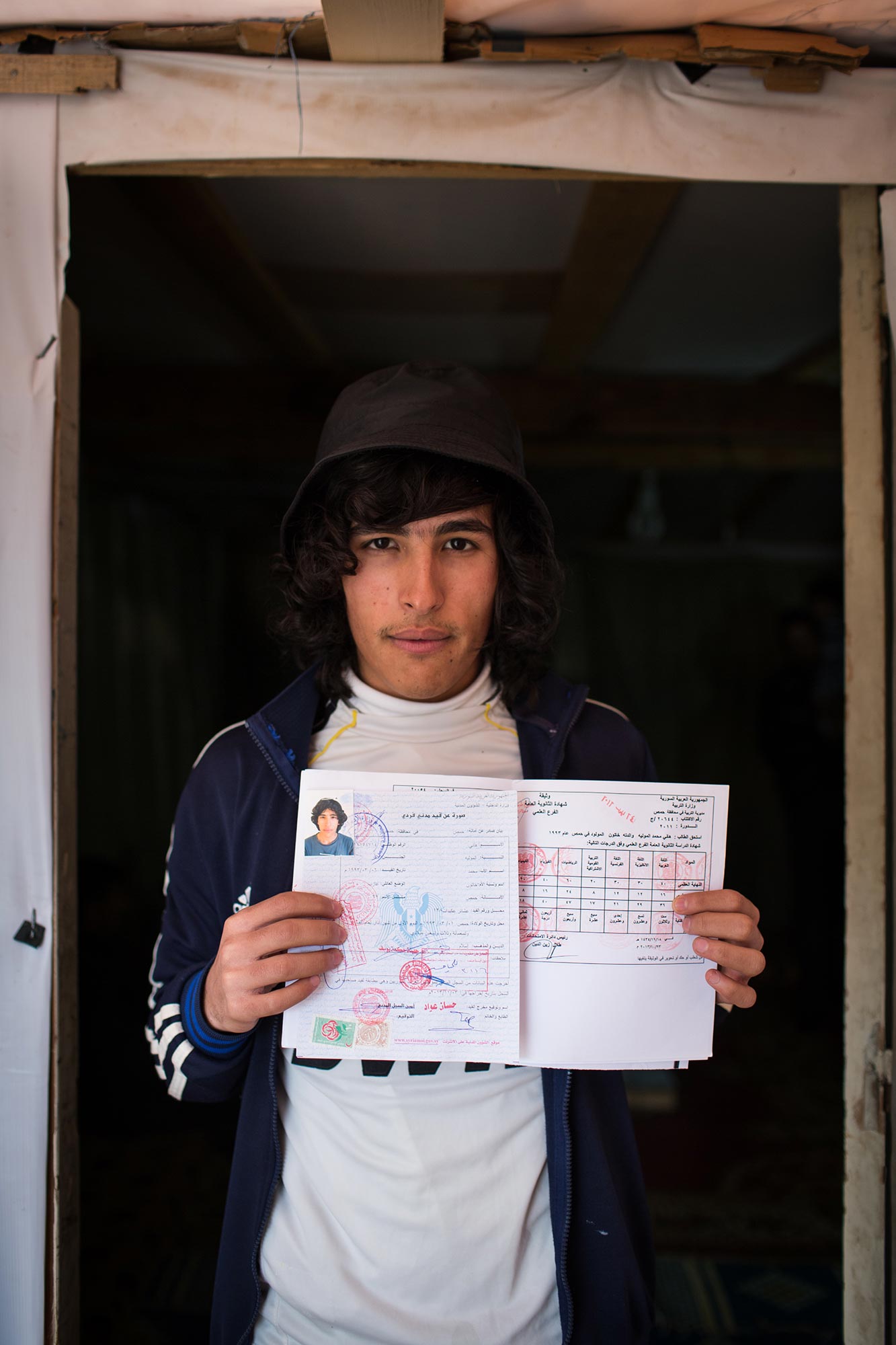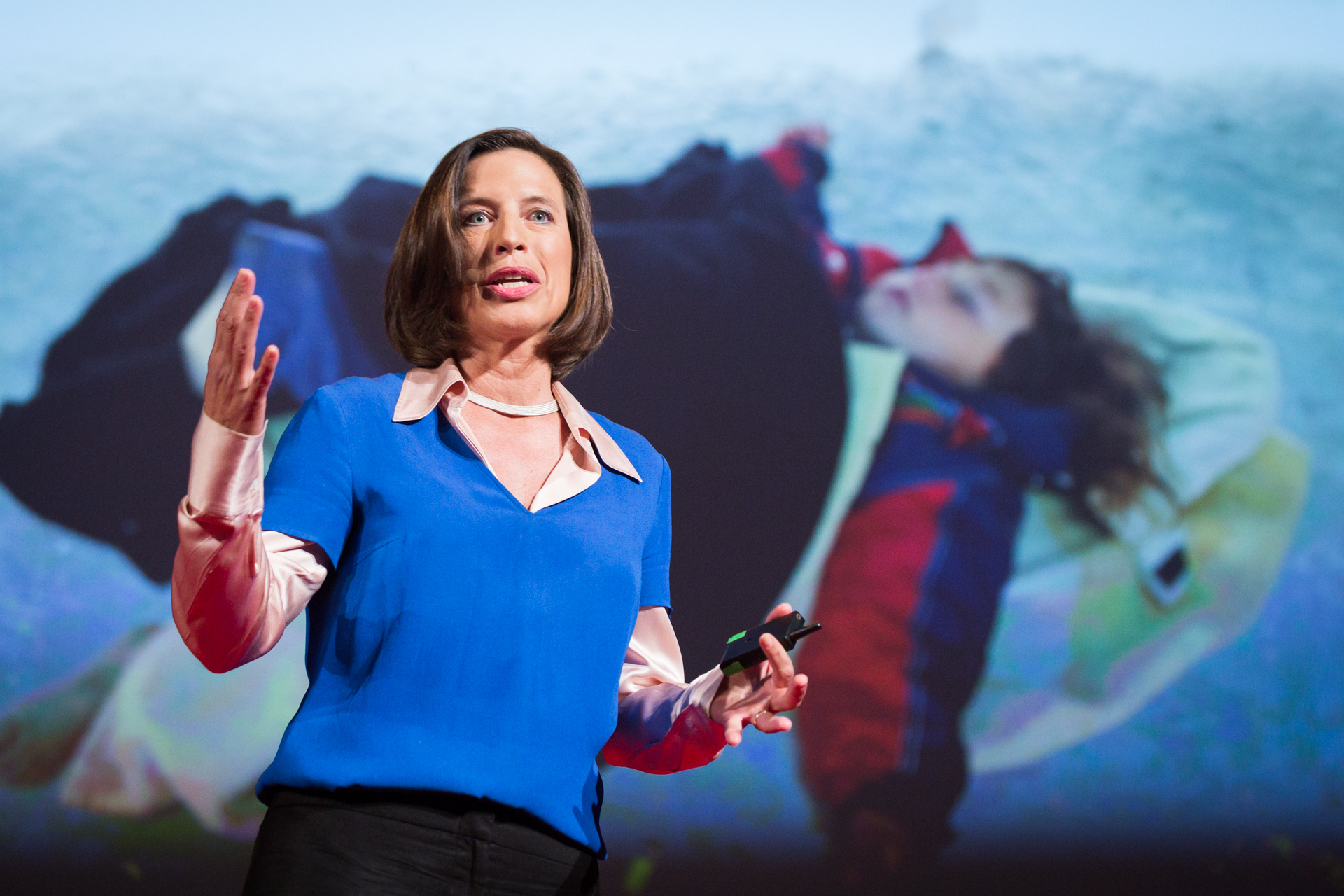“These are very difficult times to be a refugee,” says the UN Refugee Agency’s Melissa Fleming. She gives some stats that are hard to swallow: Not since WWII have there been so many people on the run; by the end of today 32,000 people will have been forcibly displaced from their homes; currently there are 1 million Syrian refugees in Lebanon, which only has a population of 4 million people. (That’s as if the entire population of Germany fled to the US over the next three years.)

Syrian refugee Hany and his high school diploma / Photo by: Andrew McConnell, UNHCR
And here’s one that’s both staggering and heart-breaking: Half of all Syrian refugees are children – and only 20 percent of them are receiving some kind of formal education. Fleming tells us about a young man named Hany whose family was forced to flee to Lebanon. When he left he took one possession without hesitation: his high school diploma. In Hani’s words, “If I am not a student, I am nothing.” Hany’s English, says Fleming, is pretty good – honed not from class but from Dan Brown novels and American rap. For Fleming, a mind like Hany’s is a terrible thing to waste.
Which is why Fleming’s call to action is: Invest in refugees. And not just to survive — but to thrive. Syrian refugees, she says, “are looking for a quiet place where no one will hurt them, humiliate them or kill them.” But shouldn’t that really be the minimum? asks Fleming of a enraptured crowd. “How about a place of healing, learning, even opportunity?”

Refugees fleeing by sea / Photo by: Massimo Sestini, Italian Navy
It’s not about sending aid to deal with a far-away problem. Eighty-six percent of the world’s refugees are living in developing countries with their own economic and infrastructure problems – so it’s up to wealthy countries to “make sure that no one fleeing violence arrives at a closed border.” Consider the fact that the average refugee will spend 17 years in exile – why not invest to provide education and training for refugees during that time? Fleming closes her impassioned plea: “Abandon refugees and leave them uneducated, and their country’s path to prosperity will be delayed by years. How we treat the uprooted will change the future of our world.”

Comments (1)